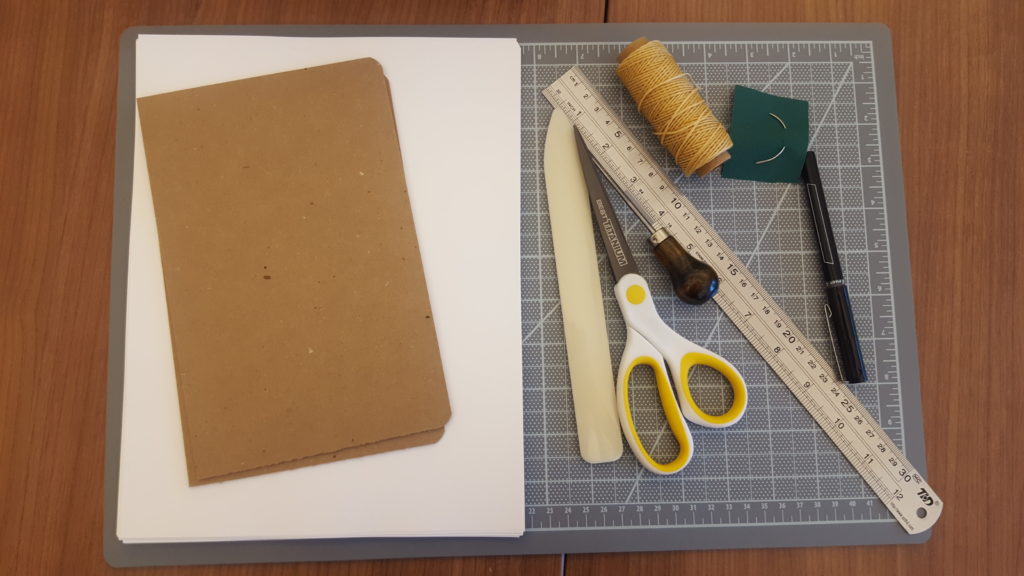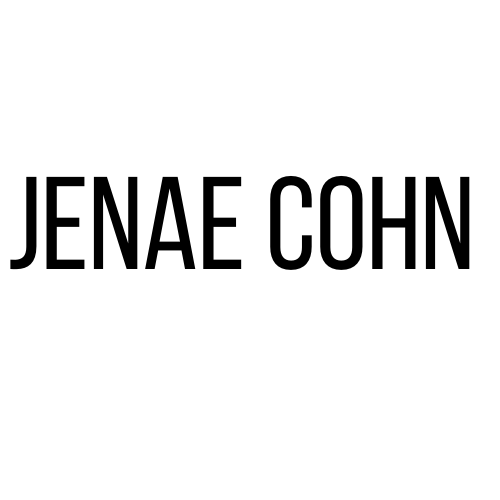
The supplies for making a “coptic stitch”-style book; this was our first “making” workshop for the institute.
What happens when you get a group of people in a room together who all love to talk about and think about what it means for the book to be a form of technology? An immediate answer is simple: you get a generative collaborative of people who are eager to work together as part of the National Endowment for the Humanities Summer Institute on “The Book: Material Histories and Digital Futures!” The real answer to this question – what projects emerge, what ideas are generated, and what partnerships are formed – has yet to be determined, as the first day of the institute has just wrapped up and I already feel my mind brimming over with way too many ideas.
Why am I here? Ever since I started my graduate work in 2011, I’ve been trying to wrap my head around why books have always meant so much to me. I identify strongly as a “reader,” and this identity has often been enveloped in the act of owning printed books and feeling like having those printed books on my shelves, at my bedside, or in my bag are an important part of helping other people understand who I am and what I care about. Yet as I’ve taught writing, as I’ve developed my professional interests in teaching and learning, and as I’ve become much more deeply steeped in the digital world and the literacies that I’ve needed to acquire to communicate and understand digital spaces, I’ve been trying to figure out why printed books still matter so much to me. What’s my ideological attachment to books? How do my feelings about books shape how and what I’m willing to read? More broadly speaking, I know, deep down, that a book is primarily an infrastructure to communicate information, so I’ve been wondering how I can become even more flexible in my ability to acquire knowledge and information from other kinds of spaces and experiences.
This institute will definitely demand flexibility: we will be doing a mix of discussions and workshops throughout, and will be working both with ideas and with making our own books in different forms. In other words, we’ll be theorizing what it means for reading and writing to be material practices and then actually handling material objects. It’s scary. It’s fun. It’s overwhelming. It’s exactly what I need right now.
So, I’m coming into this summer institute with one major goal: to finish this institute with a book proposal and chapter outline in hand that I can shop around to cross-over academic presses (AKA places that will publish books with academic rigor but that are interested in disseminating books that could have broader audiences than academia). This journey will not be easy, but I have four weeks to get it done and I’ve been wanting to write a book that considers the role of the print book in narratives around literacy crisis since, well, my dissertation days! Indeed, I’ve wanted to push beyond – but perhaps weave in – my own personal feelings towards books with what I know about the history of literacy crisis and the role that technology (from the first printed books to the spread of smartphones) plays in perpetuating anxiety around changing communicative technologies. It’s a big project, and I still don’t know where it’s really going or how I’m really going to focus it, but hey, that’s what I’m hoping this institute will allow me to do!
I’m blogging about this now too to give me a way to process some of the ideas I’ve been learning. In fact, there are a few key words that have stood out to me from our conversation today:
- Loss
- Curation
- Remediation
I’m particularly interested in the idea that mass digital literacy requires readers to be able to curate knowledge. Even before the era of mass digital literacy, we’ve had to curate what we’ve read: libraries are often overwhelming spaces because of the sheer number of books we’ve had to choose. We make curatorial choices when we decide which books to read and why we read them, which information to take seriously and which to dismiss. Yet the concept of curation becomes all the more visible when we move to a digital reading spaces because our access to information is all the greater. Plus, the materiality of the digital space does not always make it clear when one “book” ends and another one begins; we can read reams and reams of pages before we realize we’ve moved from perhaps one contained information space to the next. So, the materiality of the print book perhaps long ago gave us a false feeling of control over our information. Contained binding, linear information, and authorial control allowed us, as readers, to feel like our knowledge was contained and that we did not necessarily need to exercise any curatorial judgment over what we are reading and experiencing. We know, however, that this isn’t necessarily the case: good readers of print will, in fact, make lots of choices about what to pay attention to, what to question, and what to “talk back on.” The ability to make those choices, however, was perhaps not as evident as it is now in a moment where we can comment on newspaper articles and blog posts.
Given the increased presence of curation in our reading lives, I think that we can also then feel a sense of loss, an acute anxiety, towards what happens to our minds as readers and what change. This is the moment from which a lot of anxiety narratives are born, like Nicholas Carr’s The Shallows or Sherry Turkle’s Alone Together. But what do we gain from perpetuating anxieties about changing literacy practices? This is still the question I’m struggling with: why should our popular nonfiction (or our scholarly literature for that matter) continue to perpetuate anxieties about what we lose when we could, instead, be thinking about weighing the affordances and limitations of information technologies? Why not conceive of this moment, when we can equally access print information and digital information, as an opportunity to make thoughtful choices about where we read and when we read?
So, those are the questions I’m landing on today. I don’t know where they’ll take me yet, but I’m hoping to use these posts as opportunities to find what I want to say in book-length form and move from there. Wish me luck!

Wishing you calmness and love in this journey♥️
Love Lisa
Thank you, Lisa! 🙂